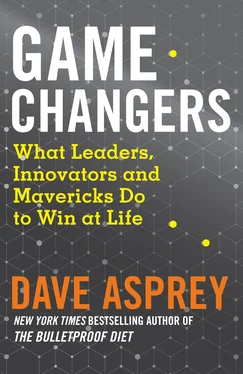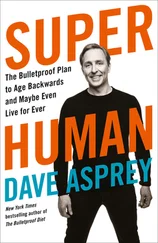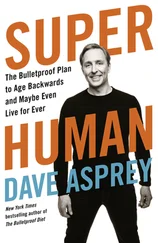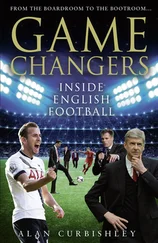When you act without intention, you will experience self-doubt. But when you are reminded of who you want to be throughout the day, you are more likely to act in accordance with your highest goals. This process serves as an endless feedback loop that leads you to find more confidence in yourself and thus to become more competent. You can actively generate the emotions that you most want to feel by doing things that are in line with your vision of the person you want to be. Brendon believes that the most important skills to master are setting intentions and taking the necessary steps to become that person. In other words, instead of discovering who you are, you become powerful when you decide who you are.
No conversation about acting with intention would be complete without input from Robert Greene, the author of the New York Times bestsellers The 48 Laws of Power , The Art of Seduction , The 33 Strategies of War , The 50th Law (coauthored with 50 Cent), and Mastery . In addition to having a strong fan base within the business world and a deep following in Washington, DC, Greene’s books are hailed by everyone from war historians to the biggest names in the music industry (including Jay-Z and 50 Cent) because he has relentlessly studied the world’s best to see what makes them tick.
I sought out Robert because long before I interviewed him, he transformed my career. Twenty years ago, I helped to start part of the company that held Google’s very first servers, eventually attending board meetings with people who were twice my age and about a hundred times more experienced. (Of course, I was the most junior person in the room, so I wasn’t allowed to speak at those board meetings, but I got to witness what went on in them.) As a rational engineering kind of guy, I simply did not understand the powerful executives around me. Their choices and the way they conducted themselves often made no sense to me. They looked irrational, if not downright crazy.
Then I picked up a book that changed that dynamic. It was called The 48 Laws of Power . This incredibly well-researched book included stories from throughout history examining how people in power had gotten there and stayed there and elegantly distilled lessons from those stories into actionable “laws.” A week after I read it, I sat in the next executive staff meeting and realized: These people are not crazy. They’re powerful! The rules they are following are entirely rational, but they’re not engineering rules. They’re power rules.
That taught me how to function at a new level in Silicon Valley, how to work in a venture capital firm, how to raise money, how to work with powerful people, and how to do what I now do at Bulletproof every day. If I hadn’t known those rules that enabled me to start thinking like a chess player, I wouldn’t be where I am now. The 48 Laws of Power not only changed the course of my career, but it also inspired the structure of this book.
When I sat down with Robert and asked him about his views on becoming the person you want to be, he said that most of us have always known who we wanted to be—we’ve just forgotten. When you were a kid, it was probably pretty obvious. He refers to the subjects you were inclined to pursue, even when you were as young as three years old, as your primal inclinations. These are your basic strengths, and they should not be taken lightly, because you are a completely unique person. No one else has ever had or ever will have your exact set of molecules or your DNA. And your unique brain learns at a much faster rate when you are learning about something that excites you. When you want to learn, you do. Robert says that if you’re forced to learn something that you’re not interested in, you will absorb only one-tenth of the information that you would if you were deeply engaged in the subject.
Yet when most people choose a career, they heed the well-meaning advice of their parents and friends or chase money instead of pursuing the things they truly care about. You can get pretty far this way, but you’ll never develop true mastery in something you don’t love because you won’t be learning at your optimum rate. Robert says that if everyone discovered the one thing they really loved and spent all of his or her time and energy on it, mastery would develop organically. I can attest to the fact that it does.
It really comes down to playing to your strengths, something I wish I had learned to do sooner. When I was starting out in my career, I sucked at project management. I didn’t like the way it felt to be bad at something, so I decided to get better at it. I put all of my energy into becoming a certified project manager and ended up just barely average at something that drained my energy and went against my natural strengths. I realized that I could have better used the energy I’d wasted becoming a less than halfway decent project manager to really move the needle in other areas. So I deleted Microsoft Project and worked with experienced project managers who seemed to have magical unicorn project management powers but in reality were simply good at their jobs because they loved what they did and had mastered the necessary skill set.
Later, I was able to put this lesson into practice when I went to Wharton, where people worked really hard to get straight A’s. I decided ahead of time to get base knowledge and just barely pass the classes that actively drained me in order to free up energy to dive deep into areas that fascinated me. I ended up intentionally getting a D in several classes, but I got the same MBA that my straight-A friends did without feeling like a failure. Focusing on the areas I loved did more for my career than spending extra time on areas of study that didn’t light me up.
With coaching from the legendary entrepreneur coach Dan Sullivan of Strategic Coach, I have learned to prioritize my actions into three buckets: things that drain my energy, things I don’t mind and are important and useful, and things that give me energy and bring me joy. My goal is to break my daily actions down so that I spend none of my time on tasks that fall into the first category, 10 percent of my time on the second category, and 90 percent of my time in the final category, the one that Robert Greene calls primal inclinations . When I find myself drifting too far from the goal, I reset my actions.
This may feel impossible to you right now. Most people spend the majority of their time on tasks that fall into the first category, but it truly doesn’t have to be that way if you use the competence-confidence loop to create the motivation to become the person you want to be and focus your energy on your primal inclinations.
Action Items
Find three words that describe your highest, best self and write them down where you’ll see them throughout the day. Or do what Brendon does and set a phone alert to go off three times a day to remind you of these words. Write them down here. Do it now.Word 1: __________________________________________Word 2: __________________________________________Word 3: __________________________________________
Identify your primal inclinations—the things you love that you just can’t help learning about.________________________________________________________________
Write down what percentage of your time you spend doing things you hate, things you don’t mind, and things that light your fire. Write them down here.Percentage of time spent on things that drain me:__________________Percentage of time spent on things I don’t mind:__________________Percentage of time spent on things that give me joy, including my primal inclination:____________
Now do what it takes to shift your ratio to 0:10:90.
Recommended Listening
Читать дальше







